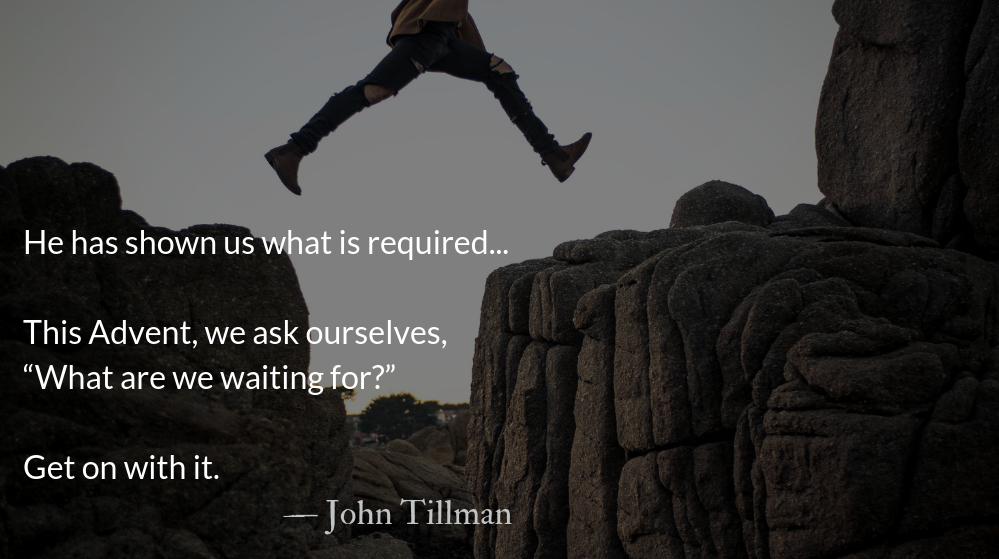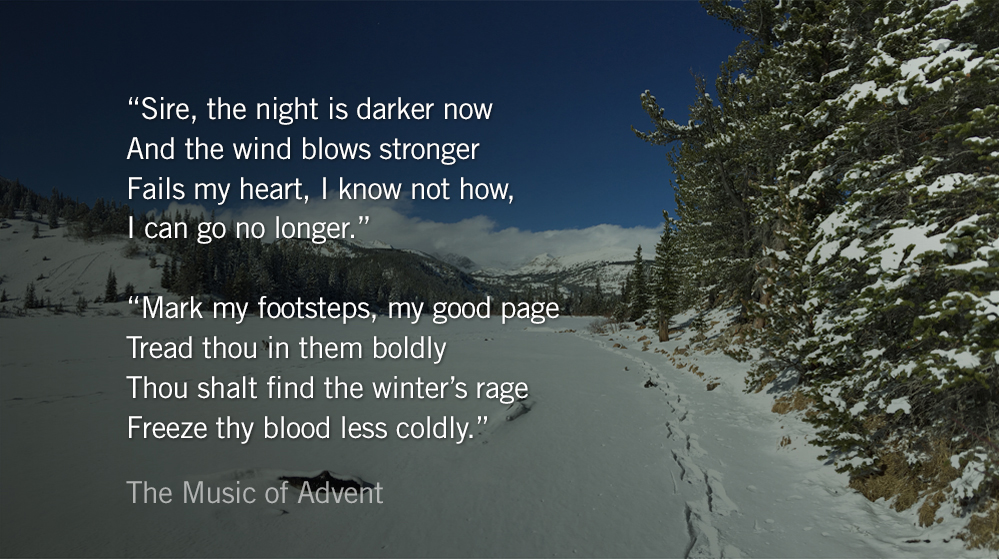Nahum 1.15
Look, there on the mountains,
the feet of one who brings good news,
who proclaims peace!
Luke 17.20-21
“The coming of the kingdom of God is not something that can be observed…because the kingdom of God is in your midst.”
Reflection: Expectation Affects Anticipation :: Hope of Advent
By John Tillman
The good news that Nahum prophesied was on the other side of exile for his readers, and the kingdom that Christ’s disciples anticipated, was mysteriously already present among them. How do we anticipate the “already and not yet?” How do we wait for what is already with us? Among us? Part of us?
Advent is a time of anticipation. But anticipation with the wrong expectation, can lead to dissatisfaction or cause us to miss what we have been waiting for completely.
Those who anticipated the day of the Lord in the time of the prophets were wrong about what they waited for. Amos, Zephaniah, and other prophets knew that day would be one of darkness, not light.
Those who anticipated the coming of the Messiah were wrong about what they waited for. The Pharisees, the Zealots, and the people all expected a king who would violently defeat the Roman empire. They rejected the humble, donkey-riding healer who would violently disrupt their economic system at the Temple.
Even the Disciples expected the restoration of an earthly kingdom, asking Jesus, “Is now the time?” “Are you going to restore Israel?” Even the people who were closest to Jesus anticipated political salvation, not spiritual.
“Managing expectations” is sometimes cynically viewed as not allowing customers to get their hopes up, so that they won’t be angry when you let them down. But when it comes to our expectations of Advent, we don’t need to manage them by lowering them. We need to raise them above temporal, earthly, material matters. We already know that what we receive will be beyond what we can ask for or imagine.
The gifts we anticipate have already been purchased at great cost, and contain more than we can ever hope for. We will focus this Advent on the gifts of Jesus in the Gospel of John (which doesn’t enter our reading plan until next Monday) and on the question “What are you waiting for?”
Many have asked this question during Advent, a time of waiting and anticipation. We will attempt to not just passively dream of what we would have from God, but to turn the question into a prompt to action in response to God. He has shown us what is required.
Do good.
Shun evil.
Give extravagantly.
Live sacrificed.
This Advent, we ask ourselves, “What are we waiting for?”
Get on with it.
Prayer: The Refrain for the Morning Lessons
This is the Lord’s doing, and it is marvelous in our eyes.— Psalm 118:23
– Prayer from The Divine Hours: Prayers for Autumn and Wintertime by Phyllis Tickle.
Prayers from The Divine Hours available online and in print.
Today’s Readings
Nahum 1 (Listen – 2:24)
Luke 17 (Listen – 4:22)
Additional Reading
Read More about Restful Meditations :: Advent’s Hope
Focusing our hearts on Christ, the hope of Advent, expands the holiday experience beyond mere merriness. In the gospel our hearts find rest from pain and hope for renewal.
Read More about Anticipating His Advent
In the Old Testament, hope is often translated from the Hebrew word yachal meaning “trust.” In the New Testament, the word hope is used for elpis, which can be translated “to expect or anticipate with pleasure.”
Support our Work
Each month over 22,000 Park Forum email devotionals are read around the world. Support our readers with a monthly or a one time donation.



